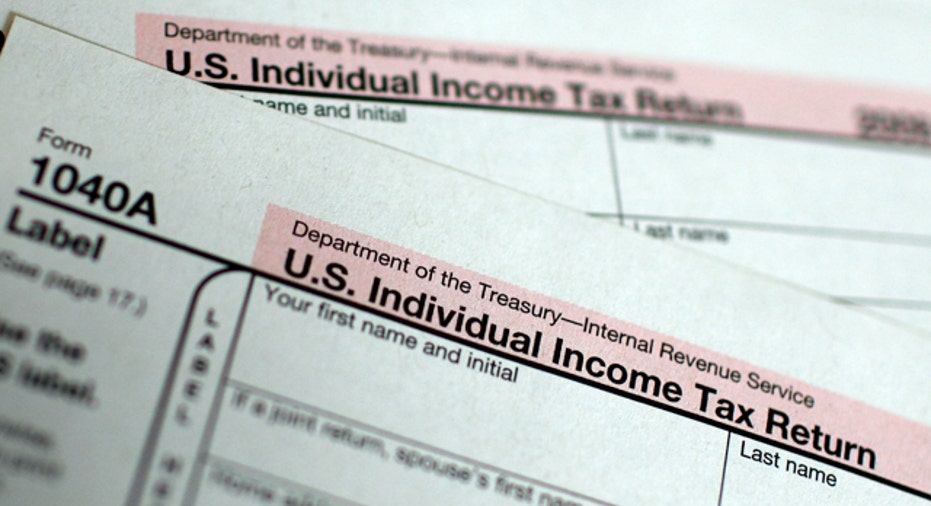A Mid-Year Look at the Coming Tax Mess

A senior Internal Revenue Service official says she's already concerned about what next year's tax filing season will look like, because of the mass of expiring provisions and possible tax changes that could occur near the end of this year and into next year.
Piling on an additional tax reform bill next year could lead to "meltdown" that could delay taxpayer refunds, Nina Olson, the IRS's national taxpayer advocate, told Reuters reporters and editors during a wide ranging interview this week. She also sent a semi-annual report to Congress cataloging the same concerns.
At issue is the uncertain nature of many tax provisions. A so-called "patch" exempting more than 25-million mostly middle-income families from the alternative minimum tax expired at the beginning of this year. So did the deduction for state and local sales taxes and a variety of other provisions. Unless they are extended by August at the latest, the IRS would have trouble getting forms out on time for next filing season, she said.
Of course, it's not all about the forms - it's about the money. And there's a lot of money at stake for most taxpayers over the next year. All of those George W. Bush-era tax rate cuts expire at the end of 2012, as does President Barack Obama's temporary payroll tax cut and the provision which limits taxes on most dividends to the capital gains rate.
Republican legislators say they want to extend all the Bush-era breaks, and most Democrats say they don't want to extend breaks for taxpayers earning more than $250,000 (or $500,000 or $1-million, depending on whom you ask) a year. Some politicos are talking about a scenario in which the AMT gets patched this year, but all of the Bush tax cuts are allowed to expire at year's end. That would allow a new Congress (and a new president?)to come in next year, hand most people a big tax cut, and give Olson a big headache.
But what about your headache? Mid-year is usually a good time to lay tax plans for the rest of the year, but this year is more confusing than most. Here are a few strategies to employ:
- Save more money. Sure, every personal finance article tends to say that. But there are a few reasons why you may need more cash going forward. If, as many people expect, that payroll tax cut expires, your pay up to $110,000 a year will be cut by an additional 2 percentage points as Social Security taxes go back to their normal levels. That's roughly $1,000 a year that the average wage earner won't see in 2012.
In addition, Olson says that too many late changes could delay refunds. She even floated the fraud-fighting idea of allowing the IRS to hold everyone's refund until all were ready at the same time. That's unlikely to happen anytime soon, but if you're the kind of person that needs your tax refund early to pay your rent check, you probably should stop counting on that.
- Recalculate your withholding. When tax law changes mid-year and retroactively, there are always problems with employer withholding levels. Either your boss is currently withholding enough money for you to get slammed with the alternative minimum tax, for example, or he isn't. Find out what assumptions went into your withholding and look at where your withholding stands compared to the taxes you paid last year.
If the AMT is not addressed this year, as many as 25 million taxpayers could owe $3,000 to $5,000 more, says Kathy Pickering, executive director of The Tax Institute at H&R Block. "Taxpayers likely to be affected by these changes can and should make adjustments to their W-4 to have an extra amount withheld throughout the year to avoid any big surprises at tax time.
- Look over last year's tax return. Which are the deductions you rely on? If you took the deduction for state sales tax last year, know that you may not get it this year, and adjust your withholding or estimated taxes.
If you rely on a lot of writeoffs - home mortgage interest, charitable deductions and more, know that some of the benefit of those deductions could fall to rate-lowering tax reform in 2013. If you've been using the required minimum distribution from your individual retirement accounts to go directly to charity (and thus avoid taxation on that distribution), note that that break also disappeared at the end of 2011. You can wait until the end of the year to see if Congress extends it, but don't wait so long you miss your opportunity to write the check and take the distribution, or you'll face a penalty.
- Watch that space. Anything can happen when election years and big tax bills overlap, but nothing may happen. Denise Gwyn Ferguson, a long time tax lobbyist and senior vice president of federal government affairs at Ameriprise Financial Inc, recently said that the only certainty is that vacation and travel plans are likely to get ruined as legislators work up to every recess and holiday, positioning and voting on tax bills. (The Stern Advice column appears weekly, and at additional times as warranted. Linda Stern can be reached at linda.stern@thomsonreuters.com; She tweets at http://www.twitter.com/lindastern; Read more of her work at http://blogs.reuters.com/linda-stern; Editing by Tim Dobbyn)
(Linda Stern is a Reuters columnist. The opinions expressed are her own)



















